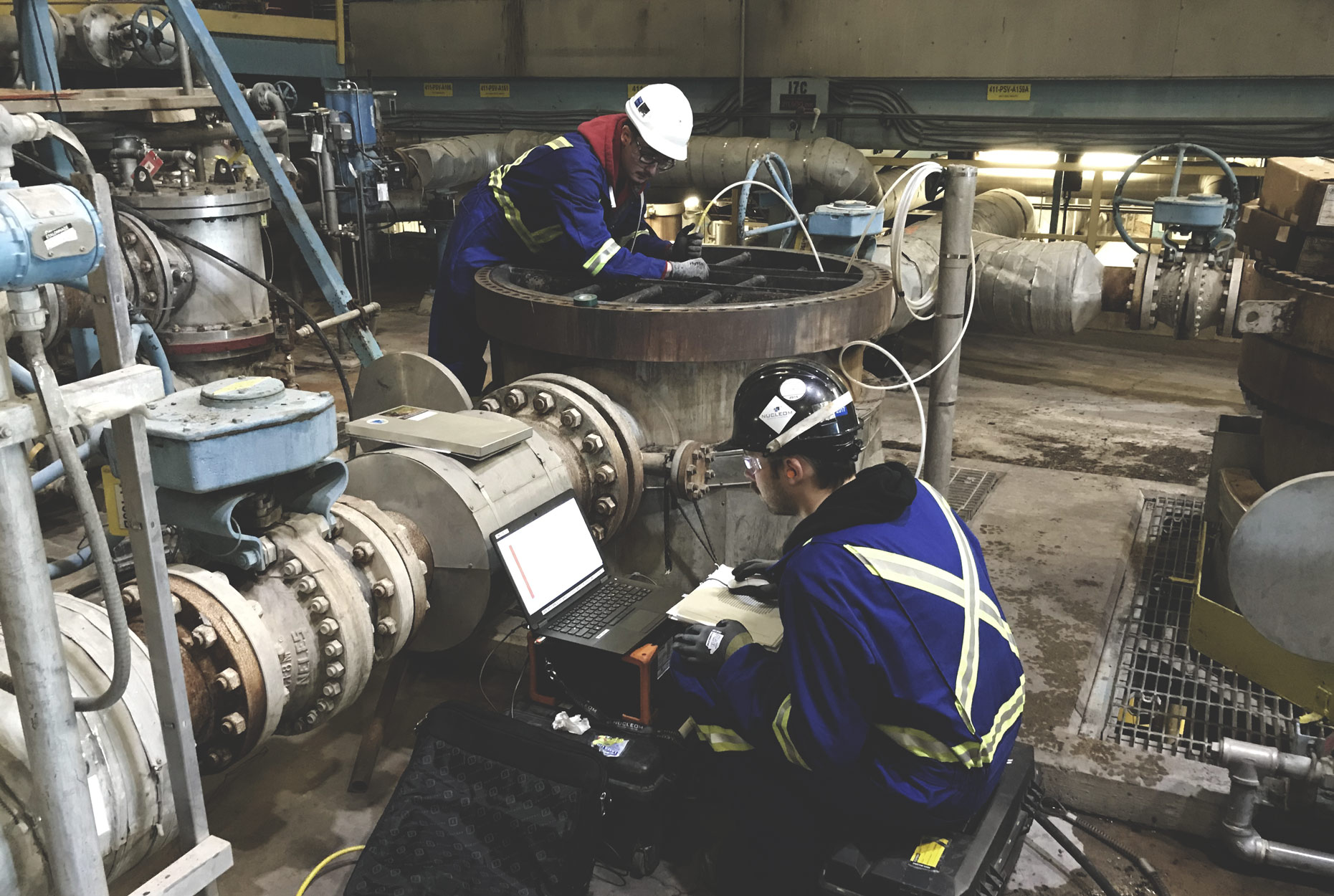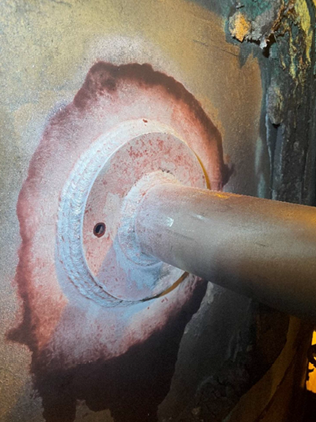Nucleom specialises in non-destructive testing (NDT) inspection solutions specifically designed to meet the needs of pulp and paper mills. Our solutions aim to preserve the integrity of assets, focusing on damage mechanisms, welds and equipment specific to this sector of activity.
he pulp and paper industry faces many challenges, such as operating in corrosive, high-temperature and high-pressure environments. Defects or damage to assets, such as corrosion, cracks or wear, can affect equipment performance and lead to costly downtime. Inspections are essential to preserve the reliability and integrity of installations, contribute to asset maintenance and help reduce unplanned production stoppages.
The drying stage is essential in the conversion process, as it consists of drying the pulp contained in the paper (or in other words, drying the paper fibres). During the process, various liquids (hot water, thermal oil, steam, etc.) circulate through the heat exchanger tubes, heating the pipes and the surrounding environment. This heat transfer can lead to corrosion inside and outside the tubes due to humidity or heat, for example. As a result, regular inspections of heat exchanger tubes and coils are necessary to prevent thickness loss, corrosion and cracking in order to minimise the risk of failure and avoid affecting plant production and energy bills.

Nucleom offers an inspection service for pulp and paper mills that preserves the integrity of pressure vessels, tanks and boilers. The inspection of welds and the validation of equipment integrity are essential to prevent the risk of equipment failure.
Various indications such as wear, corrosion, cracks, thickness measurements, etc. can be detected during in-service inspection. Our customers sometimes decide to repair welds. During the inspection of these new welds, Nucleom detects welding defects such as porosity, channels, lack of fusion and penetration and inclusions. This wide range of potential defects makes weld inspection highly versatile. It also detects discontinuities both on the surface and inside the welded joint.

Nucleom inspects specific installations and equipment in pulp and paper mills, such as digesters, evaporators, recovery boilers and bleaching machines, which are subject to corrosion and cracking problems. This is due to the highly corrosive environment and products to which they are exposed. It is therefore important to inspect them to detect corrosion and reduce its impact on the mechanical and physical properties of the parts affected. Nucleom’s non-destructive testing (NDT) inspection solutions can detect the location of corrosion, as well as loss of material and thickness. It is also possible to map the internal and external corrosion of the part, detect stress corrosion cracking, and much more. All our methods enable our customers to make informed decisions and take corrective action where necessary.
 How can Nucleom’s comprehensive inspection solutions contribute to the safe and efficient operation of your pulp and paper mills?
How can Nucleom’s comprehensive inspection solutions contribute to the safe and efficient operation of your pulp and paper mills?Our team of experienced engineers and technicians will work with you to find a solution tailored to your specific needs.
The Nucleom team managed the general shutdown of a pulp and paper mill. We provided our client with a turnkey inspection solution that covered a wide range of NDT services such as Liquid Penetrant Testing (LPT), Ultrasonics (UT), Multi-element Ultrasonics (PAUT), Radiography (RT), Magnetic Testing (MT), Positive Material Identification (PMI), Boroscopy, Thickness Measurement and Welding Services. We provided the customer with 7 NDT solutions to carry out all the required inspections. In addition, we were responsible for defect detection, repair inspections and maintenance work required during the outage. A team of 20 highly skilled technicians worked together for a week and a half to ensure the success of the project […].